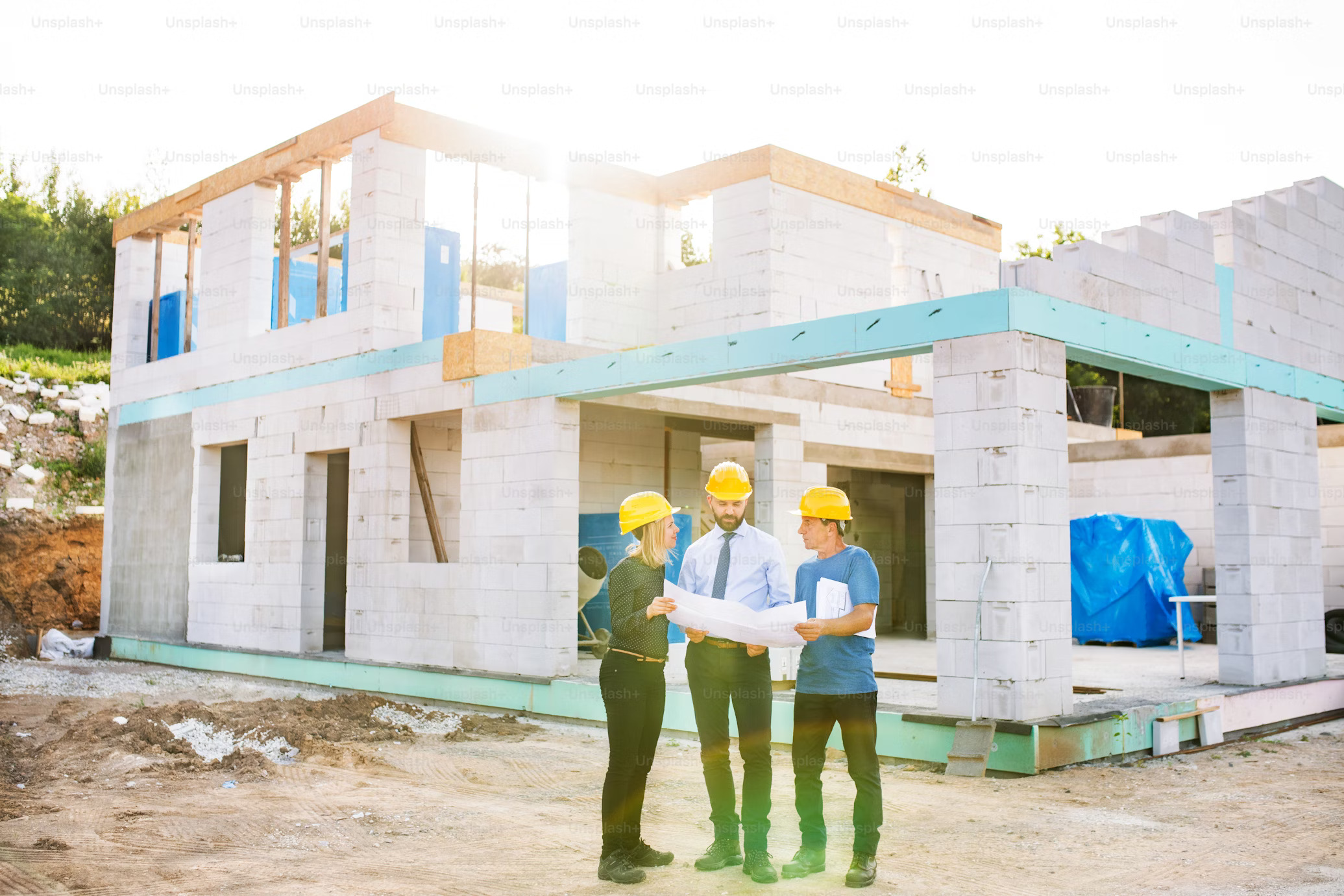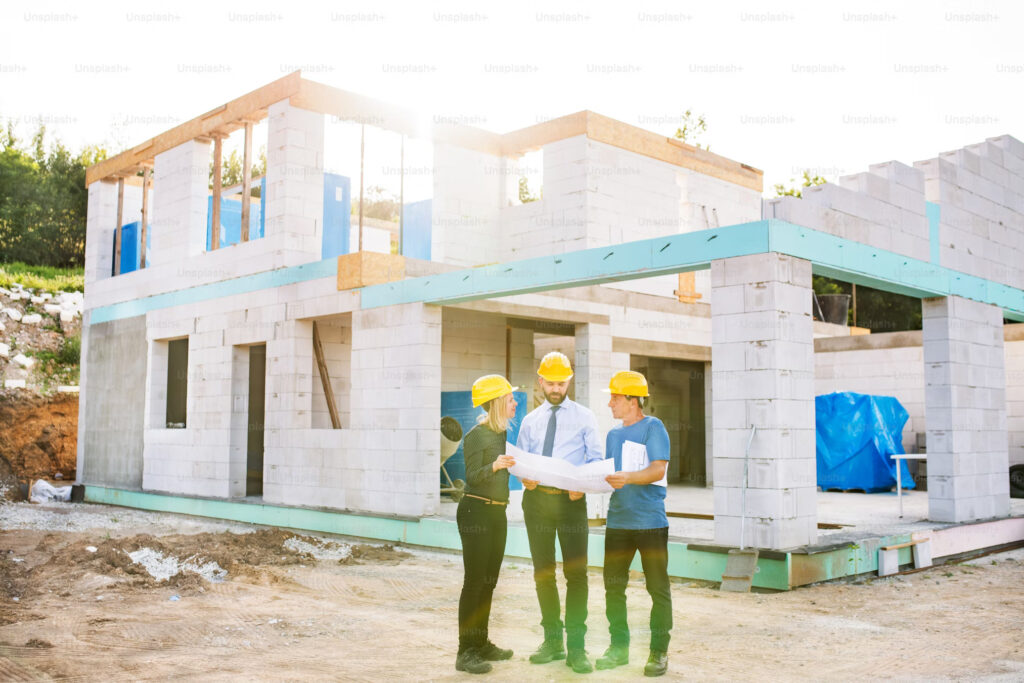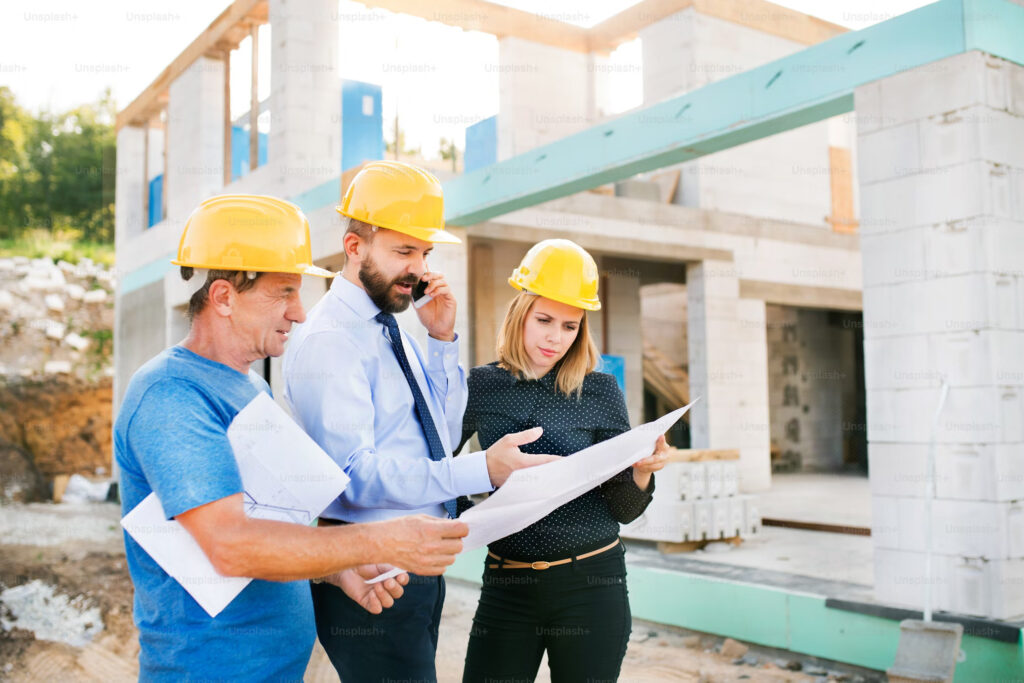
Building a new home is an exciting yet overwhelming process. Whether you’re dreaming of a custom-built house or following a pre-designed blueprint, proper planning is crucial to avoid costly mistakes.
In this guide, we’ll walk you through the first steps in planning a new home build, address common concerns, and provide expert insights to help you start your journey with confidence.
What Does It Mean to Plan a New Home Build?
Before breaking ground, planning involves creating a roadmap that outlines every stage of the construction process. This includes:
- Setting a realistic budget
- Finding the right location
- Choosing a home design that suits your needs
- Securing the necessary permits and approvals
Key Terms You Should Know
- Zoning Laws – Regulations that determine what can be built in specific areas.
- Blueprints – Detailed architectural plans that outline the home’s design.
- General Contractor – The professional overseeing the construction process.
- Permitting – The legal process of getting approval to build.
What Are the Biggest Misconceptions About Planning a Home Build?



“I can figure things out as I go.” → Without a solid plan, unexpected costs and delays can derail the project.
“Building is cheaper than buying an existing home.” → Construction costs often exceed initial estimates.
“All builders are the same.” → The quality of work varies greatly between contractors.
What Challenges Do People Face?
- Budget overruns – Unexpected expenses can strain finances.
- Permit delays – Legal approvals take time and may require revisions.
- Design regrets – Poor planning can lead to dissatisfaction with the final build.
How Can These Challenges Be Overcome?
- Set a realistic budget with a buffer for unexpected costs.
- Research and work with a reputable contractor.
- Take time to finalize your design before starting construction.
Actionable Steps to Start Planning Your Home Build
Set a Budget & Get Pre-Approved for Financing
- Talk to lenders about construction loans.
- Factor in costs for land, labor, materials, and contingencies.
Define Your Goals & Needs
- How many bedrooms/bathrooms do you need?
- Do you want an open-concept layout or traditional spaces?
- Are you considering energy-efficient features?
Find the Right Location
- Research school districts, commute times, and property taxes.
- Verify zoning laws and environmental factors.
Hire the Right Professionals
- Architects – Help design your home.
- Contractors – Manage the construction process.
- Surveyors – Assess land conditions.
Obtain Permits & Approvals
Contact your local building department for required permits.
Check homeowners’ association (HOA) guidelines if applicable.
What Do Experts Say?
“Investing in energy-efficient features early on saves money in the long run.” – Home Builder’s Association
“Smart home technology is becoming standard in new builds.” – Architect Magazine.
Current Trends in Home Building
- Sustainable Materials – More builders are using recycled and eco-friendly materials.
- Smart Homes – Integration of automation for lighting, security, and climate control.
- Flexible Spaces – Multi-purpose rooms to adapt to changing needs.
Planning a home build requires thorough research, careful budgeting, and the right team. By following these initial steps, you can set yourself up for a smoother construction process and a home you’ll love for years to come.
Would you like more insights on designing, budgeting, or finding the perfect builder? Drop a comment or share this guide with someone planning their dream home!
